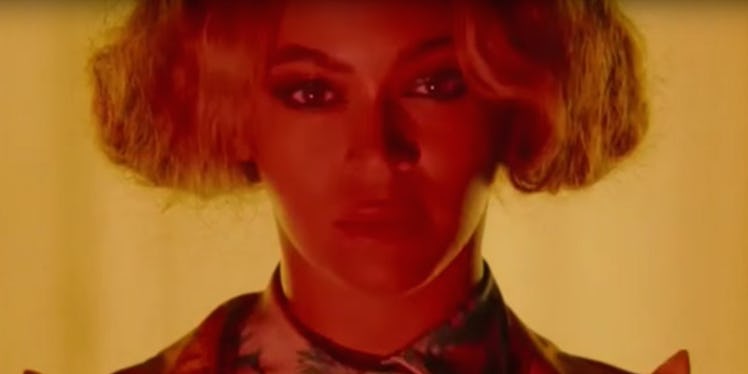By now, you're probably aware of the fact Beyoncé basically sent the Internet – and our televisions – into an uproar this past Saturday with the release of Lemonade on HBO, and its subsequent release on Tidal.
You're probably also aware the Internet exploded again when viewers concluded the mysterious "Becky with the good hair" was, in fact, fashionista Rachel Roy, due to her suspicious Instagram post captioned, "Good hair don't care."
A mysterious Instagram post is certainly not hard evidence, but that didn't matter to the Beyhive. Fans flocked Roy's social media accounts to blast her with all sorts of comments. Some were mildly harmless (such as a flood of lemon or bee emojis), but others were pretty aggressive.
Roy has since denied the rumors and has spoken out to say she is not Becky. She's also said she's been heavily targeted online since the release of Lemonade, and there's even been threats made to her family.
There's a lot to unpack in this tangled web alone, and that doesn't even begin to skim the content that is left to unpack from Beyoncé's actual album. Therein lies the problem. Everyone – fans, the media, other celebrities – has been so busy speculating that we've failed to talk about the things that actually matter.
We've all been so preoccupied with solving the mystery of "Becky with the good hair" that we haven't taken enough time to talk about the art, poetry, and bigger picture of what Beyoncé has done with her album. We've reduced something so impressive and mind-blowing into tabloid gossip. This all says something about us, the receivers and viewers of her album.
Perhaps all of this was good-intentioned. Beyoncé's fans are fiercely loyal, and if they think anyone has wronged her in any way, they instinctively want to lash out. That comes from a good place.
However, it's important to note we could be wrong. An Instagram caption could just be an Instagram caption. It could be a coincidence. It could be nothing.
Or yes, it could be something. Rachel Roy could have had an affair with Jay Z. But even so, even if it is true, does it justify the constant online harassment Roy has faced? Why is it our inclination to go after the woman? Why are we not angry at Jay Z?
Incidentally, according to a report on E! Online, Jay Z knew all of the lyrics and all of the implications that were going to be associated with Lemonade's release. E! Online's source says,
Jay is all about self-expression, so he gets it.
But, does this somehow excuse his part in the pain Beyoncé clearly endured? It is so important that we ask ourselves these questions: Why have we targeted Roy, as though she is the sole perpetrator who snatched Jay Z away from Beyoncé? Why do we act as though he had no involvement? Why do women do this to each other?
A recent article on Bustle points out this is a trend in pop culture. Many have drawn connections between Rachel Roy and Monica Lewinsky, who was heinously dragged through the mud in the '90s for the Clinton sex scandal. Will people always just point fingers at "the other woman," rather than at the cheating man?
If Twitter had existed back then, Lewinsky would have received the same attention Roy is getting now, perhaps even worse. Lewinsky herself even got in on the conversation by tweeting, "Hey, will someone let me know if it's safe for me to listen to LEMONADE?"
The bottom line is this: We could continue the witch hunt for the elusive "Becky." We could continue to create memes and clever tweets. We could continue to launch threats at Roy and whoever else might be on the next theory.
Or, we could put down the magnifying glass. We could stop overanalyzing that one lyric, and instead look at the entirety of Beyoncé's revolutionary album. We could embrace spoken word. We could talk about race. We could discuss themes, motifs and symbolism.
If we stop focusing on "Becky," we will finally be able to celebrate Lemonade — and Beyoncé — the way they deserve to be celebrated.
